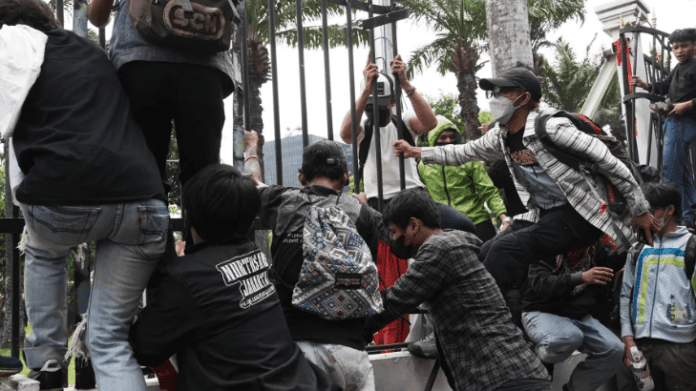Indonesia’s parliament has announced it will not ratify proposed changes to election laws during the current administration, according to Deputy Speaker Sufmi Dasco Ahmad. The decision follows widespread protests and unrest, with security forces deploying tear gas and water cannons to disperse demonstrators outside the parliament building in Jakarta.
The changes to the election law, which would have affected the country’s upcoming elections, will now be delayed until the next legislative session. This means they will not apply to the elections set to take place under President Joko “Jokowi” Widodo, who will leave office in October. Deliberations on the changes will continue after the new administration, led by President-elect Prabowo Subianto, takes office.
Protests Against Electoral Law Changes
The proposed changes had sparked massive protests across Indonesia, with demonstrators accusing President Jokowi of attempting to undermine democracy. Television footage showed protesters breaching the gates of parliament, setting parts of it on fire, while others blocked access to the building. Some carried signs denouncing Jokowi and a mock guillotine with his face, symbolizing their anger at his perceived consolidation of power.
One of the key points of contention was a parliamentary effort to reverse a recent ruling by Indonesia’s constitutional court. If enacted, the change would have blocked a prominent critic of Jokowi from running for governor of Jakarta, a key political position. Additionally, the amendments would have opened the door for Jokowi’s youngest son to run in Central Java’s elections this November, raising further concerns about nepotism.
Political Power Struggle
The power struggle between Indonesia’s parliament and its constitutional court has fueled public anger. Critics accuse Jokowi of trying to consolidate power before stepping down, despite having served the maximum two terms as president. Analysts have pointed to the growing influence of Jokowi’s family, particularly his eldest son, Gibran Rakabuming Raka, who is set to assume the vice-presidency alongside President-elect Prabowo Subianto in October.
As the protests intensified, parliament postponed its plan to ratify the law due to a lack of quorum during its plenary session. By Thursday, officials confirmed that the plan had been shelved, at least for now. However, the controversy surrounding the election law changes and the protests highlight the tense political climate in Indonesia as it prepares for a major political transition.
4o





